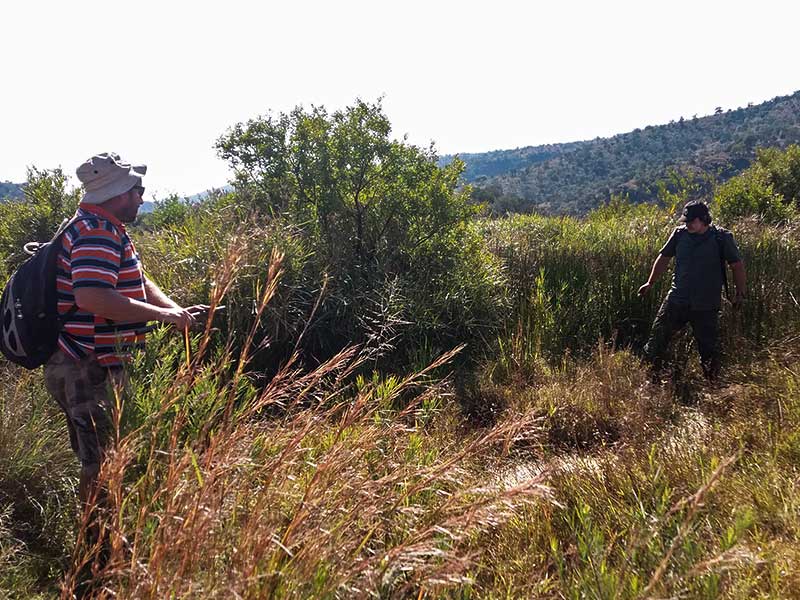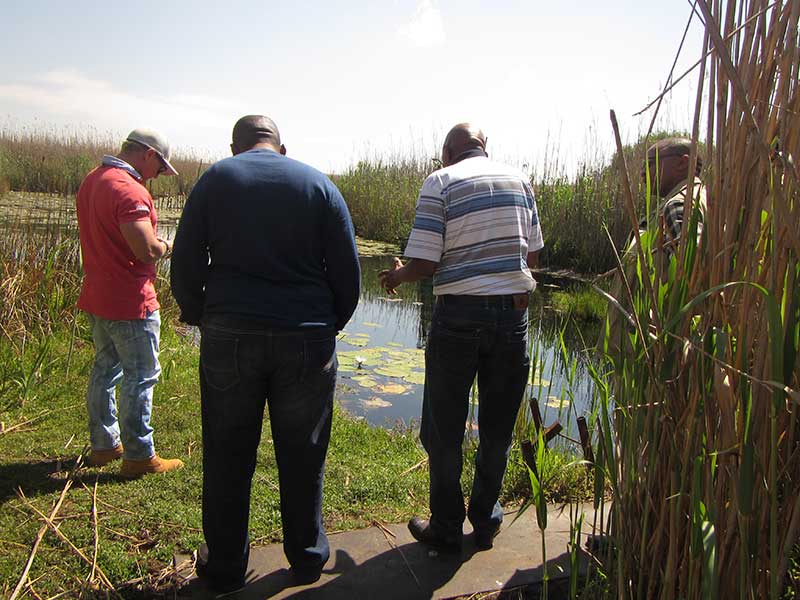Conducting Research
As sites for learning, Research is an integral part of Biosphere Reserve activities.

Research in Biosphere Reserves
Biosphere reserves were first created in 1976 to help scientists, managers, and communities better understand how to conserve bio-
Subjects for Research in Biosphere Reserves
In principle, all research subjects that result from the guiding principle or framework concept concerned are relevant to a biosphere reserve. Research applies equally to the natural, social and economic sciences since ecological/nature conservation, economic and socio-
In biosphere reserves research is mainly dedicated to drawing up:
- regional indicators, criteria and standards as well as approaches for solutions for sustainable development and land use,
- strategies for conservation and sustainable use of abiotic resources as well as biodiversity (including crop varieties and domesticated animal breeds)
- strategies for putting a value on landscapes with the aim of keeping and creating jobs, linking in ecological and economic potentials, issues relating to sustainable tourism and comparing competing demands for use of the landscape,
- fundamental principles for environmental education, communications and public relations.
The aim for every biosphere reserve should be a thematically balanced range of research topics.
The Preconditions for Research in Biosphere Reserves
The administrative authorities of the biosphere reserves usually initiate, organise and coordinate the research projects of others (research institutes, higher education institutions, specialist administrations – with support from local experts and volunteers).
Together with the people in the region, they identify relevant research topics. Harmonising the contents of projects is also important. Not all biosphere reserves have their own research budget, which would be essential to place research work ideally in terms of location, contents and time. It helps to ensure the compatibility of data, avoid duplicated data collection and ensures that existing information is used in the best possible way. Research activities also need to be guided in a way that is compatible with nature and society.
What Research and Monitoring can and cannot do
Above all, if research is to move biosphere reserves forward and give impetus to their development, creative approaches need to be applied and specific proposals for solutions are to be found. Thus planning-
The function of the BR administrations is the interface between research and/or monitoring and their implementation and is thus essential for the transfer of knowledge in the region.
The implementation of research
Biosphere reserves are attractive as research areas because of their focus on applied research, their interdisciplinary data and information pool and their logistical support through administrative bodies. In future, they should be used as pilot areas to a greater extent than in the past.
Measures to be taken are:
- to attract the attention of research donors at local and international level by promoting biosphere reserves as both research topics and research partners;
- to initiate joint research and monitor projects in and between biosphere reserves;
- to set up a research framework for every biosphere reserve on the basis of the area’s most relevant concepts and guiding principle as well as;
- to establish partnerships between universities and biosphere reserves.
Social and economic sciences should be given a much higher standing than in the past since they are the source of most environmental problems. The following issues are important:
- Methods of developing guiding principles as well as the elaboration and testing of suitable participation models, taking particular account of gender roles/gender issues.
- Developing and testing strategies for solving conflicts.
- Developing and testing strategies to increase the acceptance of environmental campaigns.
- Developing and testing methods that activate and promote ”soft“ resources (knowledge, experience, identity, tradition) in the region.
Form Downloads
ACADEMIC RESEARCH
Apply for Academic Research in the Marico Biosphere Reserve
NON-ACADEMIC RESEARCH
Apply for Non-Academic Research in the Marico Biosphere Reserve

